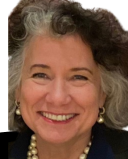Relationships
What to Do When Someone You Love Is in the Emergency Room
They were getting ready to admit him as a patient. Then his heart stopped.
Posted November 18, 2021 Reviewed by Hara Estroff Marano
Key points
- You might need to advocate for a loved one—or yourself—in the ER during or after a crisis. Be vigilant as well as patient.
- Not everything goes according to plan. Take nothing for granted. Pay attention. Ask questions.
- Until you understand diagnoses, treatments, and plans, ask professionals as many times as necessary to repeat and explain.
- Ask everyone you know for whatever form of strength they can lend you.
While certain afternoons can seem as if they take forever, life happens fast-—and so can death.
“Michael and I are headed to the emergency room right now: I believe he had a stroke.”
On May 4th, I sent that note via email and text to my two adult stepsons and their wives (they live in Colorado) my brother and his wife (they live in Brooklyn) my two closest friends (Brooklyn and Manhattan) and the administrator at our small local hospital in northeast Connecticut.
The administrator was waiting for us as Michael and I came through the doors. He gave me the briefest of hugs because he could read my face. I was desperate and I was fierce.
When I am terrified and at my most vulnerable, I do not cry. I become martial in my bearing; I stand rigid, square my shoulders, and barely breathe. I speak in carefully enunciated phrases. I am not myself, but I am instead a version of someone in control.
Michael couldn’t remember our hospital friend’s name. That fact illustrated the reason we were there in the first place: I discovered, after being gone for a few hours, Michael couldn’t remember anything—not what he was doing, not his age, not the names of our cats.
I believed my 76-year-old otherwise healthy husband had a stroke because of what I regarded as tell-tale global forgetfulness, fogginess, and repetitive questioning. For three hours, the small hospital administered every possible test—CAT scans, X-rays, MRIs—but nothing seemed definitive. His transient global amnesia, as I had already learned to call his forgetting of central facts but not all information, did not necessarily indicate a stroke.
As they were getting ready to admit him for the night, Michael’s heart stopped beating.
His heart simply stopped. He flatlined. The line went flat. I didn't realize how literal the phrase was until I saw it on the monitor.
Michael stuttered one second before the line went solid, saying, "The lights are going out,” and looked at me. Then his eyes rolled back into his head, his jaw fell open, and his skin went whiter than the pillowcase.
His blood pressure had been astronomically high, and he was attached to multiple monitors, but —because of an error on the part of one of the new members of staff—the monitors had not been hooked up the central nurses' station. There were no alerts except on his private monitor. Nobody was coming.
Nobody knew his heart had stopped.
And that’s when I started to yell. I went to the door because I wouldn’t let myself leave the room and like fifty generations of women screaming into the abyss, yelled “MY HUSBAND IS DYING! GET SOMEBODY IN HERE. HE’S DYING NOW.”
Everybody came. The staff member who had not hooked up the monitor applied CPR, and then the crash cart arrived and a doctor administered, intravenously, a drug that brought Michael back.
He did indeed return; but he had indeed been gone.
With a few minutes they were placing him on a gurney to get him to the larger hospital in Hartford that would be able to care for him in ways our local place couldn’t. He was back with no memory of what had happened. His mood was cheerful. The two EMTs were women, and when one of them said “I’ll be riding with you in the back, sir,” Michael quipped “Did you have to say that in front of my wife?”
Once he was back, he didn’t miss a beat.
This was the start of weeks of complex, scary, and life-changing medical and surgical treatment. What I thought was a crisis overcome would lead to other equally frightening events: the insertion of a pacemaker, a false sense of security until the pacemaker’s piercing of Michael’s pericardial sac and the buildup of fluids that caused him, nearly, to die again. He had to be Life-Starred back to the larger hospital and a window opened in his chest.
So. What did I learn?
I learned to ask physicians to explain and then repeat their explanations until I understood. It took more courage, determination, effort, and exertion of white, rich, old-lady privilege than it should have, in some cases, to get clear answers. I got an even more explicit sense of just how lucky I was to have excellent insurance, to have access to the kind of health care we have, and to have the guts it took to keep saying, “Tell me again what’s going on now because I’m writing it down?” I am going to work harder for health care for all, since I had the best of it, and it was a dizzying challenge.
Here’s what I wish I knew earlier: When family and friends asked if I needed help or company, I wished I had cried out “YES” in the same loud voice I used to cry for help for Michael.
I'd reassured them that I was fine because I wholly thought I was, but I recognize now that spending the first few days on my own was foolish and arrogant.
One way I learned this was by talking on an informal online gathering of my Dartmouth College classmates that had sprung up after COVID began. There was no set agenda, but I decided to tell the group what I was going through. I asked for advice and patience and support.
The response was far more personal, more fierce, formidable, and more encouraging than I could have asked for—ever. Many followed up, sent notes, told their own stories.
I felt a gathering of community that I hadn’t realized was essential, or, to be honest, available.
I learned that I needed to marshal my own forces; I needed troops to guard me emotionally and flank me with their own strengths. I recognized that I needed the military bearing I had unconsciously assumed from the start because getting medical help is a battle.
I learned to ask for help.
My stepsons and their wives, then friends and more friends, arrived and stayed as long as they could. I wasn’t alone again until Michael was back for several days and it was now time for us to resume our life together.
Because life—and death—can happen fast, if “it”-—as you define it—doesn’t make you or someone you know happy, if it doesn’t do the world at least a little bit of good, if it isn’t going to make something a little better, then don’t do it.
If it isn’t fun or helpful, don’t do it.
Don’t waste time on ridiculous stuff like regret, world-weariness, and envy.
This is all we have—this afternoon, this event, and if we’re fortunate, tomorrow morning. We will all face Our Big Day, the day on the calendar that will define us but which we pass by every year without knowing, because nobody gets out alive, and the point is to pay attention.
Thank you for paying attention to this.




